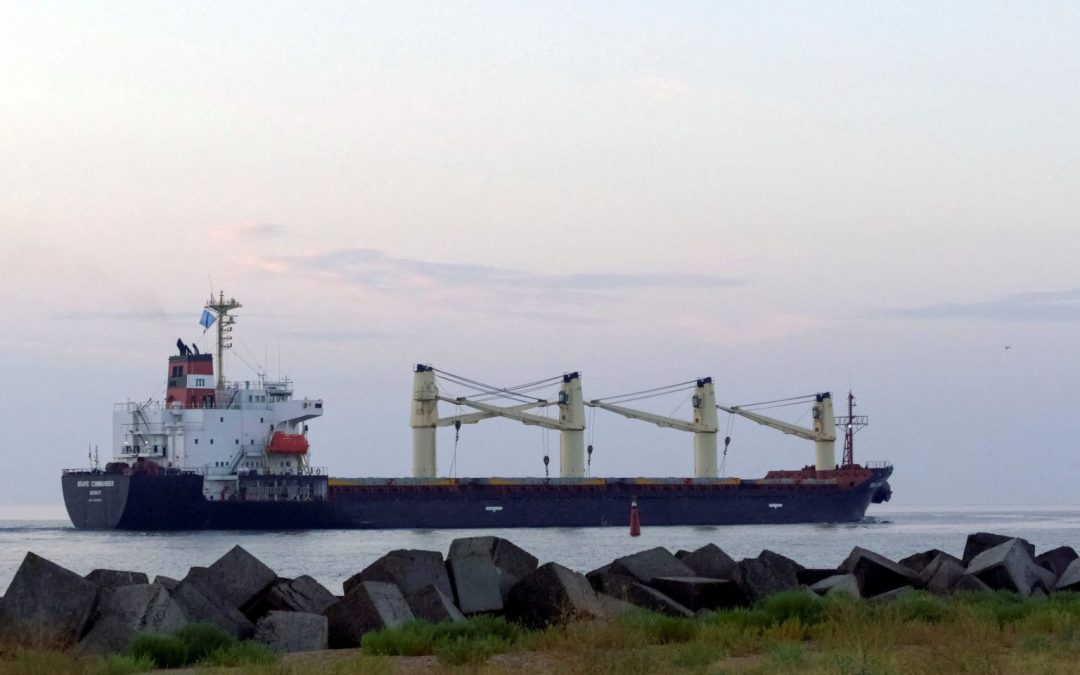Ukraine is considering using its newly-tested wartime Black Sea export corridor for grain shipments after the first successful evacuation of a vessel along the route last week, a senior agricultural official said on Monday.
Russia has blockaded Ukrainian ports since it invaded its neighbour in February 2022, and threatened to treat all vessels as potential military targets after pulling out of a U.N.-backed safe-passage deal for Black Sea grain exports last month.
In response, Ukraine announced a “humanitarian corridor” hugging the western Black Sea coast near Romania and Bulgaria. A Hong Kong-flagged container ship stuck in Odesa port since the invasion travelled the route last week without being fired upon.
“Only one commercial vessel has passed through so far, (and this) has shown readiness to move by alternative routes,” Denys Marchuk, deputy head of the Agrarian Council, Ukraine’s largest agribusiness group, told national television.
“Further, there should be a movement of potentially 7-8 more ships… then perhaps in the future these alternative routes will become a corridor for the movement of ships that are travelling with cargoes of grain and oilseeds,” he said.
Britain’s Financial Times newspaper said Kyiv was finalising a scheme with global insurers to cover grain ships travelling to and from its Black Sea ports, citing Ukrainian Deputy Economy Minister Oleksandr Gryban.
Ukraine is a major global grain grower and exporter and normally ships millions of metric tons of food from its deep-water Black Sea ports of Odesa and Mykolaiv.
But Ukraine has had to rely on its Danube river delta ports in the country’s southwest corner since Russia abandoned its part in the year-old, safe-passage deal.
To attract ship owners to Ukrainian ports that have come under fire from Russian forces, Marchuk said Ukraine had already allocated 20 billion hryvnias ($547 million) for ship insurance.
However, Mykola Gorbachov, head of Ukrainian grain traders union UGA, said that despite the mechanism of compensation for possible losses, he doubted that many ship owners were ready to ply the temporary corridors.
“In particular, it takes at least two to three days to load a ship in the ports of Greater Odesa. If during this time the port infrastructure is hit again by enemy attacks, there is a risk of damage to ships and cargo,” he said in a statement.
Gorbachov said it would be advisable to find a mechanism to ensure the security of civilian ships in the temporary corridors by providing, for example, military escorts.
“NATO ships will be able to respond to threats, including missile attacks on port infrastructure,” he said.
Source: Hellenic Shipping News





